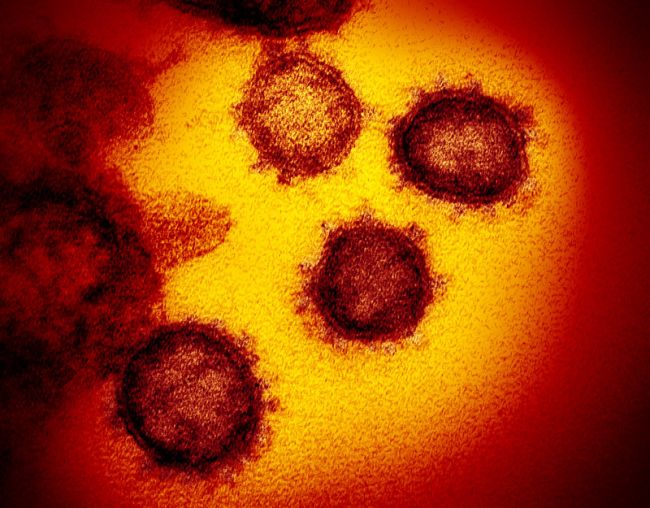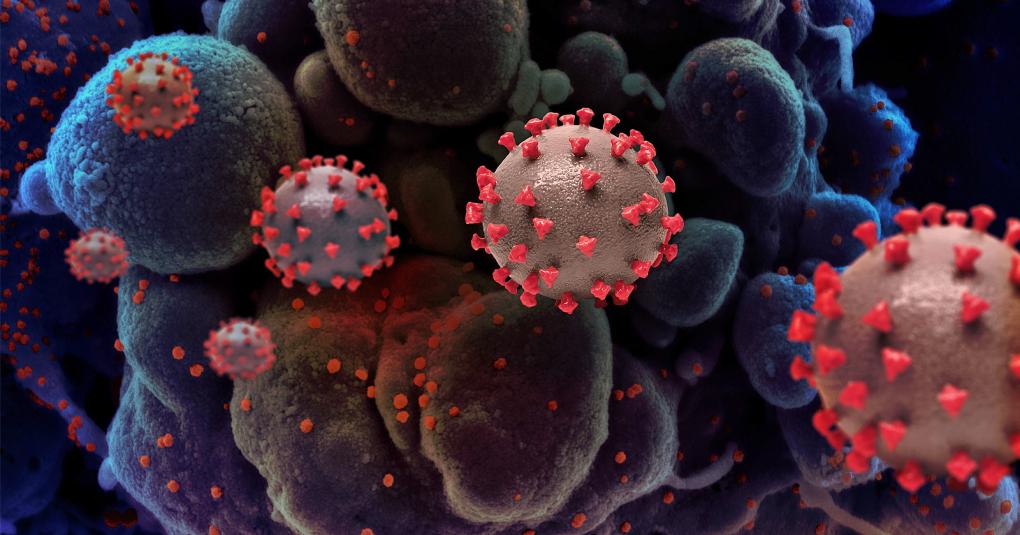
The image shows a transmission electron microscope image showing the new coronavirus emerging from the surface of human cells. (Image: © NIAID-RML)
A study by Shen et al. published on March 9th 2020, has shown by analyzing the lung microbiota (the microbes in the lung) of people infected with the coronavirus SARS-CoV-2, that the virus “evolves in vivo” after infection. “Evolves in vivo” means the virus evolves or mutates inside the body of an infected person during the infection. The virus undergoes a strong immunologic pressure in humans, and may thus accumulate mutations to outmaneuver the immune system. This observation implies that the evolution of the virus may affect its virulence or how it affects a person’s disease progression. This evolution may also affect its infectivity or how quickly the virus can replicate or reproduce itself inside the human body. And it may affect its transmissibility, or how easily the virus can be transmitted to other people.
It is not clear if or how this mutated virus is spread in the population, but the article recommends to strengthen the surveillance of the viral evolution in the population.
In conclusion, this small but significant study of 8 SARS-CoV-2 patients, makes many critical observations related to the quick evolution of the virus, but it suggests that more research is needed to understand what it means for us.
Read more


